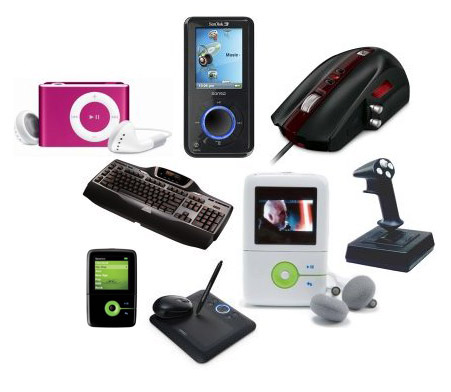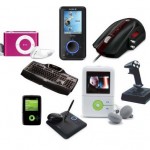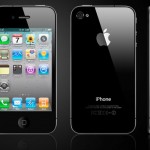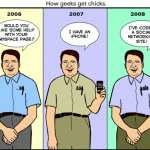The addiction to new technology is scarcely a new phenomenon, but now the lifecycle of any given product range seems shorter than ever so even the twitchiest of gadget freaks, those perpetual pioneers for cutting edge technology, have their work cut out keeping pace with the rate of change. Remember the days when gadgets were just some wheeze somebody had marketed? Many died a death, while others were superseded rapidly or merged with other products or done in a completely different way.
In essence, the marketing machine has always been the same: add some air of mystique by dropping hints, flash a new technical spec proving that the new C190X model is better/faster/ smaller than the previous model and all the other competitors (who are roundly trashed in the process) and moves the industry to new levels. So we buy it, enjoy the features for a few months, then find the new D210Z has overtaken it and must be bought at all costs. Create desire out there in the market and the product does the rest, until the competition overtakes you, which was fine until you had invested in one technology only for it to die the death. C’est la vie – earth to earth, ashes to ashes, dust to scrapyards.
Trouble is that while most changes are evolutionary, just doing the same thing better, there comes from time to time a revolutionary change of format. Betamax died a death so we all bought VHS. When DVD hit the streets, we gradually shifted our technology and video died, and much to the delight of the industry had to replace our libraries of VHS movies with the same and more on DVD. Some will doubtless be doing the same with Blu-ray discs, though who knows what will come on the scene next to replace that and blow the industry apart? Like sharks, the technology industry must move forwards or die…
Not being a massive technology buff, I’m not bothered about 3DTV and have no idea what else we might be sold, though there may come a day when I decide to replace my existing kit – probably when it begins to wear out. That said, I’m well ahead of many friends and family members in the technology stakes, some of whom are self-proclaimed Luddites. I have an iPhone, which to me makes perfect sense, firstly, because it is a great phone, intuitive and effective, but secondly it syncs perfectly with my Apple computers. QED! Why would I look elsewhere? I’m told some people have several phones so they can keep up to speed with the latest gadgetry, but then I am only looking for one robust phone I can get the most out of – the phone is a means to an end, not the end itself.
Funny thing is that I still have friends who are techophobes to this day. One friend, who is now 65, promises that he will be the last person left in the UK without a mobile phone. When you consider that in 2011 there were 32 million smartphones in the UK, with that number set to double by 2015, he is not far from the truth.
Remembering back I was there in the early days of Orange, after the demise of its predecessor Rabbit (what were Hutchison Telecom thinking?!), in the days when a telecoms network depended on being close to hot spots, not unlike wifi nowadays. My phone was a brick and it was good for poor quality analogue calls, SMS and 3 or 4 squeaky ringtones.
My next one was the banana slide phone, and that had a calendar and one or two primitive games. And gradually the size of mobiles decreased, functionality increased, the screens became full colour and much higher resolution, the games became more sophisticated (though I always preferred simple word and mind games to shoot-em-ups), music appeared, ringtones blossomed, cameras appeared (if I want a camera I will take my proper camera, I thought to myself, before I realised that it was a very useful asset as the megapixel resolution improved – now it’s nigh on impossible to get a mobile without a camera!).
3G data networks arrived, at huge cost to the networks who then began to scrabble over themselves to find the “killer app” that would mean an endless flow of profits. For some time they thought it would come from the business community, but other than specialised applications that has rarely been the case. The idea of money transfers to pay for goods via phones also died a death since security could never be good enough.
But then the smartphone revolution began. Phones ceased to be mere phones and became hand-held mobile computers for accessing social network sites like Facebook and Twitter – that drove the traffic, and lots more apps for smartphones have followed in the wake, helped by the fact that you can connect your phone to wifi too. The essential difference is that we are now all connected and can utilise technology for a huge range of new applications.
Connectivity always would make a difference, since we inevitably get bored and find the straightjacket of solo activity restrictive. When I began playing with computers, it was a terminal to the Salford University computer with which you communicated via ticker tape. When I learned COBOL programming, it was on a Cromenco “multi-user minicomputer”. The computer was a monolith, designed to run large applications. Then came the IBM PC and we were on the road to personal computing, albeit stand-alone. Gradually networking technologies began to appear and our personal data could be hooked up on the same system. Then we all began to get on to user-friendly versions of Internet access (when I started using the net it was hellishly complicated and required a degree in techno-drivel, not to mention being impossibly slow!), and suddenly the sky was the limit!! What on earth would we do without it?
Of course that is not the only factor in our selection of gadgetry. Sometimes we like it in its own right – a short-term status symbol, small devices that provide convenient functionality make a good talking point. Not only that, but many devices are now multi-functional and overlap, so you can use them in different ways to extend their novelty factor. Your game station plays visually amazing, and often bloody and violent, games, not to mention DVDs and internet connections with your wifi so you can now do everything online with other geeks using whatever device you happen to have.
Personally I would prefer to take time and wait til a market and product matures before parting with hard-earned cash, unless my hand is forced (a) because I need the convenience of whatever the product does, or (b) my old one has broken. So it was with iPhones – having recently replaced the glass on my old 3GS model, I dropped it again and got the “white screen of death”. Nothing the Apple shop could do, so after some discussion with the insurance company and being mis-sold by Phones 4U (another story but don’t buy from them if you can possibly avoid it!), I got my iPhone 4S. It’s very good, fast and easy – love it. Maybe when the iPhone 5 is launched, I will want one – but for the next 18 months or so.
Of course it doesn’t have to be personal hand-held gadgets. There are bits of technology for every purpose – in the home, in the car, on holiday, personal hygiene, you name it. Whatever the need, somebody has manufactured something to deal with it. For all the fact that I am a real food fanatic who dotes on his Aga, I have a fair number of kitchen gadgets. These include: a combo microwave/oven/grill that does everything imaginable and complements the Aga nicely; a bread maker (with timer so you can have freshly-baked bread for breakfast!); a juicer that will extract juice and pulp from any fruit or veg; a George Foreman grill, if only because the Aga doesn’t have a grill as such and my searing pan is too small to be an indoor equivalent of a BBQ; also a deep-fryer and a toaster, but otherwise it’s just good quality pots, pans, knives and helpful tools in my accessory drawer!
On my car there are endless gadgets, most of which are now standard issue when not so very long ago they were bare of all accessories, even heaters and radios! My favourite was an optional extra, but a brilliant one, given my high mileage cruising motorways. Not satnav, since mostly I do routes I know well, but adaptive cruise control. You know cruise will peg your speed at the press of a button, but you have to brake when you come close to another vehicle? Adaptive cruise keeps you at a set distance from the car in front, and will speed up or slow down up to the maximum speed you have set. Brilliant – makes life so much easier. That is a great gadget which aids safety, and one day it will be standard issue on all cars.
Look around you and there are gadgets everywhere, many websites devoted to them. Taking The Gadget Shop as one such retailer, there you can buy thousands of devices you never previously knew you needed. For example:
- 3-way object locator
- Micro digital luggage scales
- Water gun cannon
- Dancing water speakers
- Voice box
- Remote control iPhone helicopter
Most of these and many more would probably be regarded as toys for the boys, and the vast majority just for novelty value – particularly in choosing a present to amuse – but they do indicate the enduring appeal of items which truly are 9-day wonders. Yet it is amazing that we are so often enticed into buying things which in hindsight look dumb. How many of our gadgets are honestly used on a day to day basis? This surely is the criterion we should be using, and if so my adaptive cruise control passes the test but the juicer fails!!













More about mobile phones than actual gadgets! Expected more on silly gadgets we buy but do not use. A great read nevertheless, and fresh bread and freshly squeezed juice for breakfast sounds lovely. You never know one day I could try it!!!!
The point was that the development of mobiles is symptomatic of the development of gadgetry in general, and I do mention many others, lots of which we don’t ever use again. I do have clementines so maybe breakfast juice is a a good idea though!!